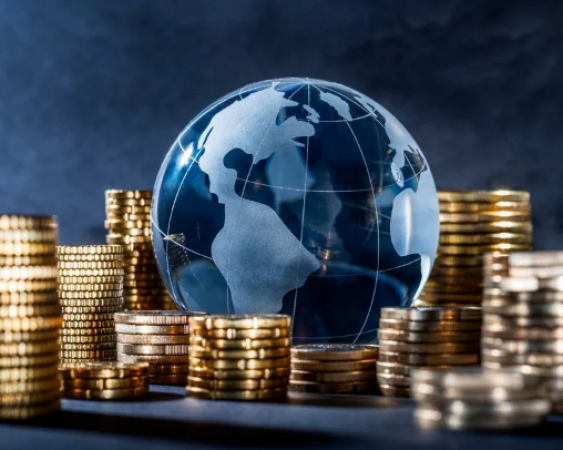
Cape Town: West Africa had a generally difficult year in 2022, but there were some encouraging signs. In the midst of Ukraine's difficult recovery from the pandemic, a war broke out there. And the region largely absorbed the effects thanks to hyper-globalization.
Then, a cost-of-living crisis struck a number of nations. In an effort to rein in soaring inflation, Nigeria and Ghana raised their interest rates on multiple occasions.
It didn't, though. It actually got worse. The cedi of Ghana became the worst-performing currency globally. Protests also broke out in Sierra Leone as a result of a struggling economy. And the worst flooding in decades hit Nigeria.
Also Read: IMB missionaries are still "present" despite global inflation
However, everyone is curious about what the future holds now that a new year has begun. We also pay attention to analytical projections because we can't really rely on magic crystal balls. This time, we're examining some West African nations' World Bank forecasts.
First and foremost, it's important that we begin from a broad perspective. There isn't a lot of hope for the world economy in 2023. Bloomberg's December 2022 survey of economists found that a recession in 2023 has a 70% chance of occurring.
The World Bank also feels the same way. Because of this, it reduced its projections for global growth in 2023 from 3% to 1.7%. However, because of the continent's relatively divergent economies, it is unclear how much the world's events affect those in Africa.
Here are the World Bank's predictions for 2023 for some of the biggest economies in West Africa.
With the exception of Nigeria, the World Bank anticipates growth in the western and central economies this year. Compared to 2022, these economies' growth rates will increase to 5.0% in 2023 and 5.6% in 2024.
According to the report, Nigeria's economy will contract by 2.9% and the nation is experiencing "an underperforming oil sector." Nigeria's oil production was so low last year that it lagged behind Libya and Angola. Furthermore, the biggest economy in Africa is still struggling with a fuel shortage crisis that could result in higher inflation.
Also Read: Reasons Pakistan's Economy Is A Basket Case
The grass, however, appears to be greener elsewhere. Senegal, whose oil and gas industry is booming, is the country the World Bank is most optimistic about.
The World Bank predicted that after slowing to 4.8% in 2022, Senegal's growth would accelerate to 8.0% in 2023 and strengthen to 10.5% in 2024. If this occurs, the country's growth in 2019 will surpass the all-time high of 8.9% set in 1976.
With the Greater Tortue Ahmeyim gas project's first and second phases producing 7.5 million tonnes of liquefied natural gas, Senegal anticipates earning $1.4 billion in oil and gas revenues by 2025.
By the end of 2023, its first gas project will start producing gas. Additionally, a surge in private investment in the nation's mining sector has helped to improve its export portfolio.
Economic growth in Côte d'Ivoire is anticipated to increase from 5.7% in 2022 to 6.8% in the following year. The nation, which is rich in cocoa, has been working hard to increase its oil production by 2023. It declared last year that it had found new oil and natural gas, increasing its reserves by 25%.
Additionally, according to the World Bank report, Cameroon will experience moderate growth of 4.3% in 2023 and 4.6% in 2024, driven by "investment and private consumption."
Data on the amount of investment Cameroon attracted in 2022 are not yet available, but portfolio investment set a new record in 2021.
It's noteworthy that, like many others, the World Bank's projections don't always pan out. One of the reasons it frequently modifies its forecasts is because of this.
Once more, forecasting is the equivalent of gazing into a crystal ball for economists, and it probably has about as much (if not less) success in predicting the future. Maybe even the World Bank doesn't care about accuracy.
We can make that claim because the organisation never divulges its forecasting model, which makes criticism uncomfortable for some.
I was going to demonstrate whether or not their earlier predictions for these nations were correct. But I soon came to understand that the World Bank, IMF, and other institutions had frequently been mistaken about developing nations, developed nations, and even the entire world.
According to one analysis of IMF growth projections for India between 2006 and 2013, the margin of error ranged from 10.5% to as much as 46.8%.
That does not, however, justify discounting these projections. Even though the numbers may not be great, the prospects for many developing countries, particularly those in Africa, are frequently cause for concern.
For instance, according to the World Bank, "Growth in per capita income over 2023–24 is expected to average just 1.2%, a rate that could cause poverty rates to rise, not fall, in Sub-Saharan Africa, which accounts for about 60% of the world's extreme poor."
Also Read: Global optimism increases going into 2023
Although this estimate is dubious, the World Bank asserts that governments must prevent further debt escalation. That statement is true. 17 African nations' debts to China had to be forgiven last year. Along with declaring a debt default, Ghana requested a bailout from the IMF.
Therefore, even though no one can predict the future, it's critical that governments focus on issues like debt, inflation, infrastructure, and other issues that are within their control.